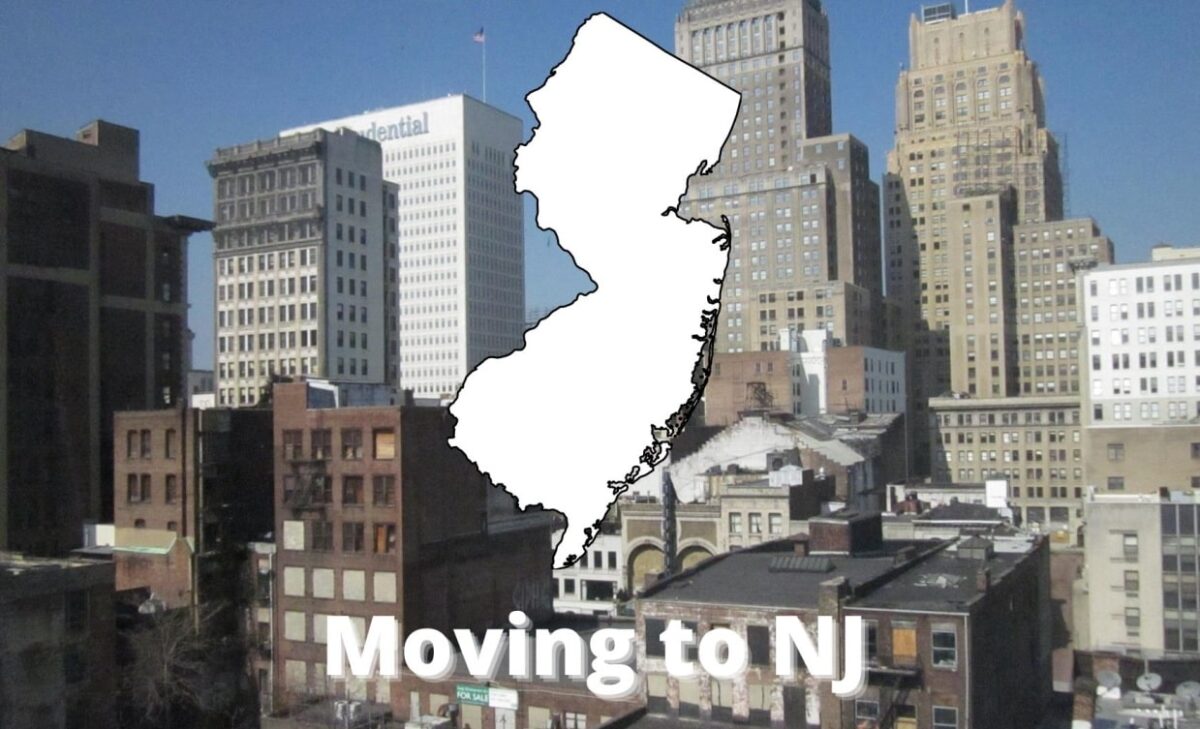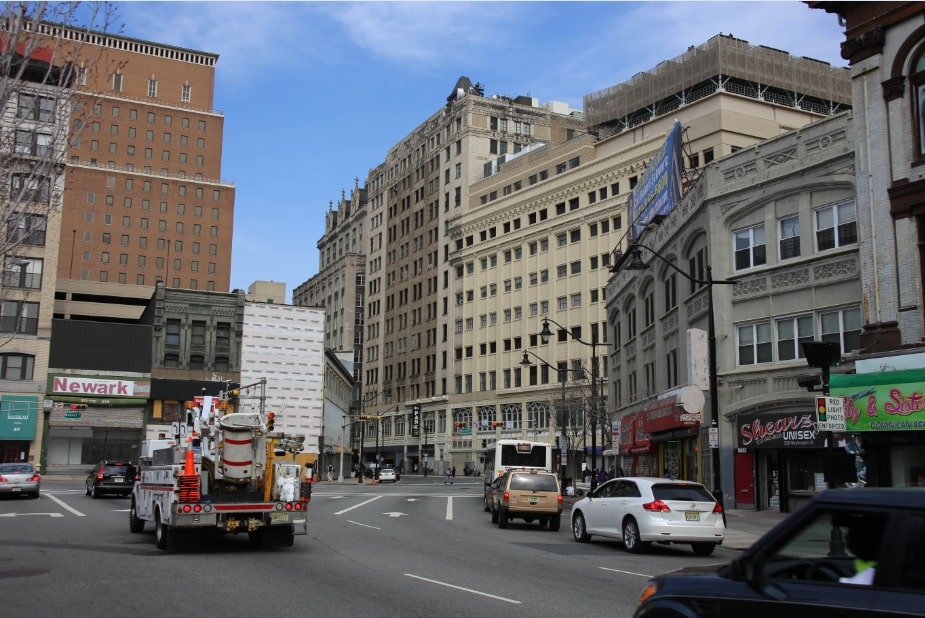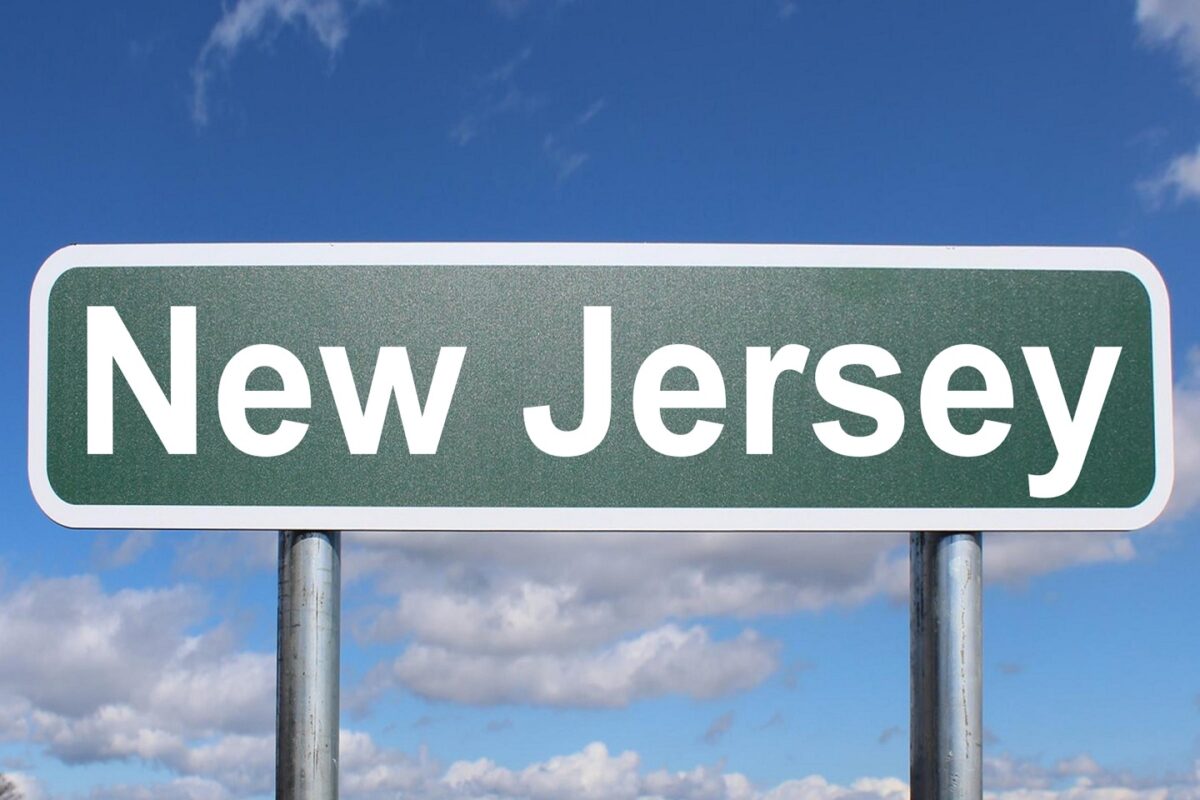Are you dreaming of living near NYC, but prefer to keep your rent prices down? Then look no further than Newark, NJ. This bustling city offers plenty of amenities so you can easily live, work, and play here. Of course, if you ever want to visit New York City, it’s a quick train ride away, which means you’ll always have something to do. If you’re interested in moving to Newark, NJ, read the below guide to see if it’s the right city for you.
Important Things to Know About Newark
Busiest City in NJ
Newark is the most populous city in New Jersey with a population of around 311,000. Measuring a total of 25.89 square miles, it has the third-smallest land area among the 100 most populous cities in the US. Its large population is due to the abundance of jobs due to being one of the nation’s major air, shipping, and rail hubs as well as its proximity to New York City.
One of the Oldest Cities in the U.S.
Settled in 1666 by Connecticut Puritans led by Robert Treat, Newark was created to be a theocratic assembly of the faithful. This didn’t last long as new settlers arrived bringing different ideas. Eventually, in 1693 it was organized as a township and granted a charter in 1713. It eventually was incorporated in 1798.
In addition to being one of the oldest cities, Newark is also home to the oldest municipal commercial airport – Newark Liberty International Airport. Built in 1928, it was the first municipal airport in the nation and was the busiest in the world until LaGuardia was built in 1939.
Moving to NYC Made Easy
If you get tired of Newark, New York City is just around the corner. Newark is serviced by NJ Transit and can get you to Penn Station in under 30 minutes. While NJ Transit is more expensive than taking the PATH train, it’s still cheaper than taking a taxi or Uber. The trains run every 10 minutes during rush hour and every 20-30 minutes during off-peak times.
If you’re not close to the train station, there are also many bus stops in Newark that will take you to the Port Authority Bus Terminal in NYC. While not quite as fast as the trains, it can often be more convenient as you can request the bus to stop at specific locations.
While there’s currently no ferry that takes you to Newark, there has been talk from the Hudson County Planning Department to expand service to Port Newark, though this hasn’t been approved yet. If you really want to travel by water, you can take a boat to Paulus Hook ferry stop, but you’ll need to take a taxi from there to Newark, which takes around 15-20 minutes.
Prefer to drive? It’s almost a straight line from Newark to the Holland Tunnel, which connects to Downtown Manhattan. If you work in Midtown, then you’ll need to travel a bit further north to access the Lincoln Tunnel. Either way, driving can take almost three times as long as taking public transportation so you might want to leave the car at home.
Development of Newark
Newark earned a reputation for being a dangerous city. However, since the 1990s it has transformed due to infrastructure investments from Goldman Sachs Urban Investment Group and Prudential Financial. The mayor has also worked hard to ensure healthy and sustainable growth while managing gentrification. One such project includes the Teacher’s Village, a hybrid development complex with schools, a community learning center, retail, and affordable apartments.
Newark hasn’t stopped there. In addition to revitalizing the business sector, there is also a push to enable residents to become homeowners at more affordable costs dubbed the Homeownership Revitalization Program. Residents who have lived in the area for 5+ years could buy a house for as little as $1 with a few key restrictions including:
- Qualified buyers must live in the house for at least 10 years
- The property must be used for construction of a one, two, three, or four bedroom house
- Buyers can only purchase one property
So if you’re looking to move to Newark, then now is the time!
Official Wards of Newark
Newark is New Jersey’s largest and second-most racially diverse city. It consists of five official wards, though residents have broken these wards into smaller neighborhoods.
- North Ward – home to the historic district of Forest Hills, the North Ward contains many older mansions and colonial homes. It is also home to the Cathedral Basilica of the Sacred Heart and to Branch Brook Park, which has the largest collection of cherry blossoms. In fact, it has 600 more than in Washington, D.C!
- South Ward – If you’re in the healthcare profession, the South Ward is the place you want to live as it is home to the city’s second-largest hospital – Newark Beth Israel Medical Center. It’s also great for families as there are a total of 17 public schools just in this area alone.
- Central Ward – home to around 55,00 residents, it also boasts many historical sites such as Kreuger mansion, Eberhardt Hall, and the Abyssinian Baptist Church. It’s also the hub for Newark’s higher education as you will find Berkeley College, NJIT, Rutgers, Essex County College, and Seton Hall University School of Law here.
- East Ward – known as the Ironbound, it’s perfect for foodies as you’ll find more than 170 restaurants, wine shops, and specialty food stores. If you get tired of eating, you can walk around and enjoy the wide variety of local stores.
- West Ward – once predominantly an Irish-American, Polish, and Ukrainian neighborhood, over the years the demographic has become more diverse as more Latinos, African Americans, and Caribbean Americans have moved in. The West Ward offers some lovely historic sites such as the Fairmount Cemetery and the lovely Ivy Hill Park.
Largest Schools and School System in Newark
Newark’s public school district is the largest school system in New Jersey with over 60 schools ranging from elementary to high school. While Newark’s public school might not rank as the best in New Jersey, there are some great options such as Science Park High School ranked in the top 100 of the 322 schools statewide. There are also several private schools that serve children from pre-k to high school giving you plenty of options.
When it comes to higher education, Newark is home to multiple first-rate colleges and universities, most notably Rutgers University-Newark and Seton Hall University School of Law. While it might not fall into the Ivy League category of schools, Rutgers offers competitive undergraduate and graduate degree programs. For those looking to get into law, Seton Hall University School of Law is the top-ranked law school in New Jersey and ranked in the top 100 in the nation.
Largest Employment Sectors in Newark
More than 100,000 people commute to Newark every day, making it New Jersey’s largest employment center. There are plenty of jobs available regardless of what industry you want to join. And while it may no longer be the thriving industrial complex it used to be, there is still a decent amount of industry and light manufacturing.
Newark is most known for being the third-largest insurance center in the United States only behind New York City and Hartford, CT. Some of the largest companies originated in the city including:
- Prudential Financial
- Mutual Benefit Life
- Fireman’s Insurance
- American Insurance Company
It is also home to 19 Fortune 500 companies including Merck & Co Inc., Johnson & Johnson, Verizon Communications, Bank of America, and more.
Newark has also quickly become a hub for technology ever since Audible moved its headquarters to Newark in 2007. Since then other companies have followed suit including Panasonic and WebMD. One notable technology company that garnered attention was AeroFarms. This aeroponics company eventually built the world’s largest indoor vertical farm in a Newark warehouse. You don’t have to be a big tech company to do well in Newark, though. The city has attracted venture capitalists and startup accelerators, making it one of the best places to launch your next tech startup.
Of course, many people also commute out of Newark for work. With NYC only 30 minutes away, you have practically unlimited options. Plus, if you work in NYC you’re getting NYC pay without having to pay NYC taxes. Heck, your income tax is lower in NJ as well. Just make sure that when you file your taxes you complete your NY one first. Then NJ will provide you with a tax credit for anything you paid over the NJ income tax amount.
Living in Newark Is Cheaper or Not?
When compared to a place like New York City, Newark is significantly cheaper. With that said, there are a couple of areas where living in New Jersey might be slightly more expensive. Perhaps the biggest drawback is the high property tax. New Jersey has the highest property tax of any state at 2.42 percent compared to the national average of 1.07 percent. Newark itself has an even higher average property tax at around 3 percent. Transportation is another area where you might end up spending more. While Newark does have excellent public transportation options if you want to have flexibility in where and when you travel you will want to own a car, which ultimately means gas, insurance, and maintenance payments.
However, the savings you receive likely outweigh what you might spend on transportation and even property taxes. The latter you really don’t need to worry about unless you buy a home. And since the majority of Newark residents are renters, you probably won’t have to worry about property taxes at all. At first glance, housing costs might look expensive. The average rent for an apartment is around $1,500 though this varies depending on the location, size, and quality of the apartment. However, when you compare the costs of rent to NYC, you get more bang for your buck. For the cost of a small studio apartment in NYC, you can get a nice two-bedroom in Newark.
When it comes to general living expenses, you’ll find you’re spending much less money on groceries, entertainment, and shopping. In fact, if you shop in the parts of Newark that are a part of the Urban Enterprise Zone, you can take advantage of the reduced sales tax of 3.3125 percent compared to the standard 6.778 percent.
Safety Issues and Crime Alerts
Newark earned a bad reputation for being a dangerous place. Much like other large cities, Newark definitely has unsafe areas. However, thanks to the strides it has made in developing and transforming the city, it has become much safer overall. Your best bet is to avoid walking around by yourself late at night.o, but that’s generally good advice anywhere you decide to live.
If you’re raising a family, some of the safest neighborhoods are found in the North Ward. You’ll want to avoid areas in south neighborhoods as you have a 50 percent chance of being a victim of crime compared to the 3 percent chance in north neighborhoods. Your best bet is to use your judgment and avoid places that give you a bad feeling.
Newark’s Population Overview
Newark has a population of around 311,549 making it the 62-most populous municipality in the United States. The median age is 34.4 years old and despite being home to several universities, only around 11 percent of the population has earned a Bachelor’s degree.
Newark has a relatively diverse population though the majority of residents are African American. White people make up around 26.3 percent and Hispanic or Latino make up 33.8. Asians make up a small portion of the population at 1.6 percent. It’s the second most racially diverse city in New Jersey second only to Jersey City.
Is the Climate Hot or Cold?
Newark’s climate lies between a humid subtropical and humid continental climate. That translates to cold winters and hot, humid summers. In general, Newark doesn’t suffer too much from extreme weather, but the most common issue the city experiences is both inland and coastal flooding.
Other common natural disasters that occur include:
- Tropical storms and hurricanes
- Drought
- Landslides
- Winter Storms
Amazing and Fun Activities to Do in Newark
As the largest city in New Jersey, there’s plenty to do in the area whether you’re a nature lover or into the performing arts.
- Performing Arts – You don’t need to head into NYC to enjoy some amazing performing arts programs. Newark is home to the New Jersey Performing Arts Center, Newark Symphony Hall, and New Jersey State Opera.
- Museums – Newark is home to New Jersey’s largest museum – The Newark Museum of Art. Its collection is ranked 12 among art museums in North America and highlights American and Tibetan art.
- Newark Murals – Since 2009, the city of Newark has sponsored Newark Murals, a series of outdoor murals about various people, places, and events in the city. The largest mural is The Portraits mural which is the length of 25 football fields and is the longest continuous mural on the East Coast and second longest in the country.
- Experience the Cherry Blossom Festival – While Washington, D.C.’s Cherry Blossom Festival attracts people from around the country, Newark’s Branch Brook Park actually has the largest collection of cherry blossom trees in the United States. With over 5,000 trees in more than eighteen varieties, you can enjoy the soft pink hues that usher in the spring.
- Eat at Diverse Restaurants – Newark is a great place for foodies. It is home to one of the busiest airports in the nation, and as such has cuisines from all over the world. Venture into the Ironbound, Newark’s top dining destination, and enjoy food from Portugal, Spain, Italy, and more.
- Walk along the waterfront – Once you’ve enjoyed all that Newark has to offer, enjoy a relaxing stroll along the chain of parks along the Passaic River. During the summer, you can even take kayaking or riverboat tours and enjoy a different view of the city.
Moving to Newark, NJ
If you want to stay in a relatively busy city but don’t want to pay NYC prices, then Newark has a lot to offer. In fact, you might never need to step foot in NYC if you don’t want though the option is always there. Once you’ve weighed the pros and cons of living in Newark, NJ, call up trustworthy NJ movers like us!



